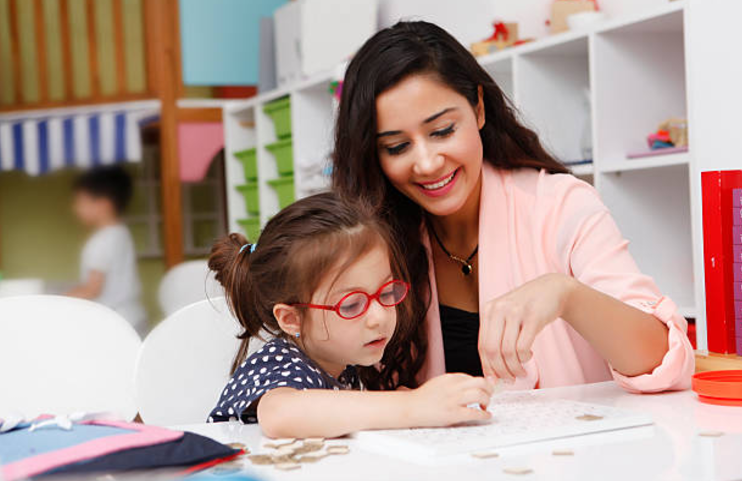The Shadow Teacher: What to Expect from Your Child’s Super Helper?
The greatest superhero of all is the one who requires no recognition; the one who works on the sidelines and is always ready to assist. No, we’re not talking about Batman. We’re talking about your child’s super helper who gives them the extra support they require in the classroom. In a mainstream setting, a lot of students face difficulties and have special needs; they cannot cope with the classroom environment because it is going way too fast for them. Enter the Shadow Teacher; an educational assistant who is assigned to directly help a student or a group of students struggling inside the classroom by guiding them in their studies and interactions, during their preschool and elementary school years.
Most parents take it as a given that an assigned shadow teacher will provide the necessary assistance their child requires. Unfortunately, this is not always the case, and they may end up with the wrong shadow teacher who can cause more harm than good; hindering a child’s progress and generally wasting everyone’s time. For this reason, Etcetera met with educational psychologist, Dr. Rasha Mashmoushi, to learn what Lebanese parents should look for in their child’s shadow teacher. Dr. Rasha states that parents should take note of the shadow teacher’s education, preparation, communication, and relationship with their child.
1. Education
The college degree a shadow teacher has is of high importance; “the minimum is that the teacher should know about special education and what is meant by the different learning disorders,” emphasizes Dr. Rasha. She adds that “they need to be very familiar in the field of special education and preferably, they, themselves be special educators.” When dealing with a learning disorder, there are always specific nuances to consider. For example, if the student is hyper, the teacher should know how to deal with this hyperactivity; “if he’s inattentive, he or she should know how to deal with his inattention,” adds Dr. Rasha.
2. Preparation
Part of being knowledgeable about a student’s learning difficulty is knowing how to prepare for it. Parents should be informed about the Individualized Education Plan (IEP) that the shadow teacher has prepared for their child. The IEP helps a struggling student because it clearly maps out the goals, teaching methods and assessment tools that will be implemented and used. “There are visual aids that need to be used and tasks that need to be divided into steps,” Dr. Rasha further elaborates.
She continues to explain that “a shadow teacher is not a nanny in the classroom; she’s not there just to make sure the child is safe. She needs to do a lot of teaching, guiding, modelling and assessing so the child’s needs can be met.” A shadow-teacher should work at the pace of the student and according to his functional level, “He or she should know when the child is giving his nest, and when he needs to be pushed to do better,” Dr. Rasha asserts.
3. Communication
A continuous flow of communication between the school, psychologist, shadow teacher, and parents is key. It is up to the shadow teacher to act as a link and a mediator between all parties, since he or she is the one working thoroughly with the child. In school, the shadow teacher should work closely with the classroom teacher. Dr. Rasha cautions parents about the diffusion of responsibility between both teachers: “Quite often, when there is a shadow teacher, the classroom teacher becomes less involved with the student as he is getting the necessary attention and care from the shadow teacher.” However, “the classroom teacher should remain involved in creating targets and goals for the child along with teaching the rest of the students,” Dr. Rasha concludes.
Moreover, it’s also very important to keep a line of communication going between the shadow teacher and the parents, so that they can be guided on what should be done at home, and how they should be supporting their child.
Dr. Rasha also encourages parents to ask shadow teachers to contact their child’s psychologist in order to consider strategies and receive guidance on what needs to be done. She highly recommends that shadow teachers “develop their skills, ask professionals for advice, and seek supportive tools because psychologists are here to help”.
4. Relationship
As the shadow teacher becomes a child’s closest ally at school, a relationship built on trust and respect is valuable. Finally, and fundamentally, “the child needs to feel comfortable with his shadow teacher.” Dr. Rasha explains that “when the relationship between the two is positive, the child is cooperative and willing to put in the effort to learn. On the contrary, when there isn’t a good relationship, it may not be as beneficial,” warns Dr. Rasha.
Dr. Rasha Mashmoushi has a Master’s Degree in Educational Psychology from University of Bristol in England. She also completed her Doctorate studies in Applied Educational Psychology at the University of Nottingham in England. She previously worked in London, Dubai and Saudi Arabia. Now she practices in Lebanon at the Psychological Assessment Center (PAC) at AUBMC.






